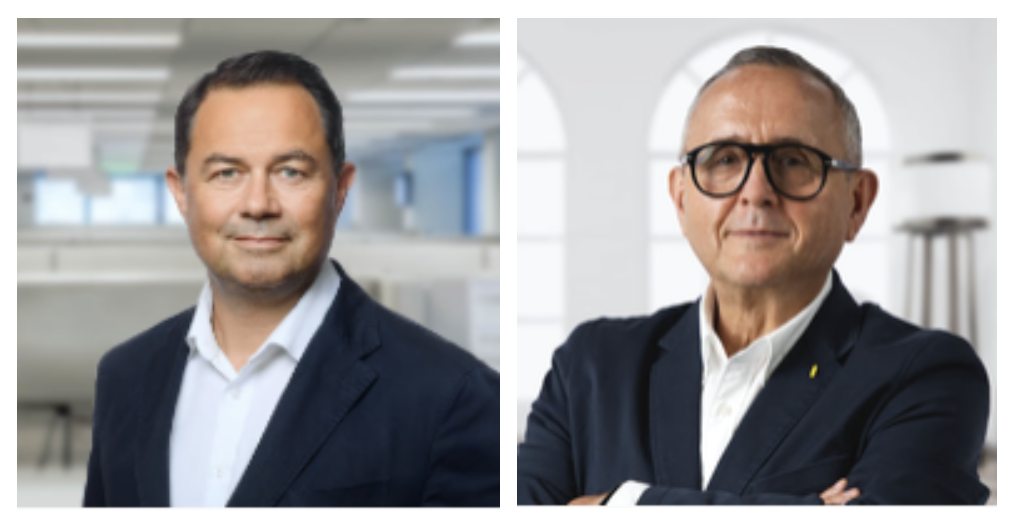CRISIS.HARDSHIP.RESCUE.

CRISIS.
HARDSHIP.
RESCUE.
WHEN LIQUIDITY EVAPORATES AND MARKETS COLLAPSE, THERE IS NO TIME FOR HARMONY WORKSHOPS.
CORPORATE SHOCK THERAPY MEANS: A RADICAL REALITY CHECK, TOUGH DECISIONS, CONSISTENT IMPLEMENTATION – BEFORE IT'S TOO LATE.
CORPORATE SHOCK THERAPY
A report by Ulvi I. Aydin
Corporate Shock Therapy - Why Companies Need a Wake-Up Call in a Crisis and How They Can Turn Things Around
When companies slide into a crisis, you often hear the same familiar terms:
"Transformation process", "change readiness", "culture travel", or "take everyone along with you".
Oh, that sounds nice!
Harmonious.
Humanistic.
It seems like leadership, but it is not!
It's calming.
Sedation.
And in the worst case: Sabotage.
BECAUSE WHEN COMPANIES run into difficulties, when liquidity evaporates, customers jump ship, and competitiveness disintegrates, it is not the time for group dynamics seminars and empathy-infused workshop formats. Then it's time for a wake-up call. For Corporate Shock Therapy.
THIS STATEMENT SOUNDS MARTIAL. And it should because it describes exactly what a failing company needs in a critical situation: a radical reality check, combined with immediate, tough, and clear intervention. During a crisis, it is not about inspiration. It's about rescue! It is about pulling an organization out of its lethargy – and not with cotton balls, but with the cold, hard truth!
CLEAR WORDS AT ROLLS-ROYCE
An excellent example of this was provided by Tufan Erginbilgiç when he took over the CEO position at Rolls-Royce in early 2023. Instead of delivering the usual litany of "new era", "joint journey", or "transformative vision", he stood in front of employees, the press, and investors – and said publicly that the company was a "Burning Platform". The company was in trouble!
AND THAT WAS NOT A RHETORICAL slip of the tongue, not a communication error. This was a calculated blow to the gut of everyone who had led the company into a dangerous mediocrity for years. Erginbilgiç knew that this metaphor aptly described the dire state of Rolls-Royce and that it had to serve as a wake-up call. A shock that heightens awareness.
:devider:
"SAVING A STRUGGLING COMPANY IS NOT A POPULARITY CONTEST – IT IS A RACE AGAINST THE CLOCK."
"COMPANIES ARE NOT ADULT EDUCATION CENTERS, THEY ARE VALUE CREATION SYSTEMS."
It makes repression impossible. And it forces the management team to do what has long been neglected: Taking drastic measures.
HEAVY HAND AT RENAULT
The second case that exemplifies the necessity of Corporate Shock Therapy is the French carmaker Renault under Luca de Meo. When de Meo took over the failing traditional corporate group, he found a structure that had been inflated for years: with a bureaucratic overhead, inefficient production capacities, a frayed portfolio, and an organization that had become bogged down in every direction.
HIS RESPONSE TO THIS was not a large-scale "transformation campaign" in which feel-good visions were shared on colorful slides. No, de Meo did what had to be done: He closed plants! He cut management levels! He parted ways with beloved projects that did not add any value! And he radically refocused the company on what it could still do: compact, brand-strong cars – efficiently developed and intelligently positioned.
CRISIS DOESN'T NEED A CULTURAL PROGRAM
Both cases show the same pattern: When companies are on the brink of collapse, no cultural program can help. No "journey to the inner center". And neither can managers who are afraid of making themselves unpopular. The situation requires surgical precision, determination, toughness, and the courage to make unpopular decisions. Because this is saving a company: Not cosmetics, not an initiative, not a change story – but a surgical procedure. An open-heart surgery on the organization. With the explicit goal of ensuring survival. And not everything can be preserved. Because the truth is: Not everyone can come along for the ride. Not everyone should come along. Only the right ones remain. The Praetorians of the Organization!
THIS IS NOT A COLD MANAGEMENT THEORY, but pure necessity. In every organization, there are people with vested interests and internal saboteurs. People who cling to inefficient processes because they offer them a sense of security. People who have settled into dysfunctional structures, like into a comfortable armchair.
"IT DOESN'T MATTER IF EVERYONE COMES ALONG FOR THE RIDE – WHAT MATTERS IS THAT THE COMPANY IS STILL STANDING."
Those who have managed the company but never moved it forward. In the crisis, these roles can no longer be dragged along.
There is no more room for "it feels important". Only for: Concretely effective!
:devider:
AWAY WITH THE EUPHEMISMS!
This is where many companies stand in their own way. Too many board members are afraid of being too honest. They choose a language that remains harmless and embellishes reality:
"Cost reduction" becomes "efficiency increase",
"Firing" becomes "structural measurement package",
"Restructuring" becomes "transformation".
HOWEVER, THIS RHETORICAL SELF-OBFUSCATION does not serve the company! It serves solely to protect the self-interest of those responsible. They fear reactions, resistance, and damage to their image and lose sight of the essentials: The need for clear, courageous leadership. Those who soften the situation prolong the standstill. And stagnation in the crisis is nothing more than accelerated decline.
YOU DISTRIBUTE SEDATIVES in the form of dialogue events and external coaches. All with the goal of making changes as painless as possible. But that's BS! These calming measures do not create change; they manage the problem. The structures that led the company into the crisis remain untouched.
THE WRONG PEOPLE STAY ON BOARD, inefficient processes are glossed over, and those responsible sell inactivity as mindfulness. But underneath the surface, the crisis continues to progress – quietly, destructively, and mercilessly! And the company? Drifts further away, accompanied by pleasant statements and fatal complacency.
:devider:
PLEASE NO GRACE PERIODS!
I say: If you want to save a company, you must confront. You must point out what is going wrong. And act immediately. There is no more time for grace periods. No 100-day tour of friendliness. Because every week in which the wrong structures remain in place, every week in which dysfunctional leaders are protected, every week in which the organization considers sensitivities instead of facts, is a lost week. And one week in crisis can break your back.
CORPORATE SHOCK THERAPY MEANS: All cards on the table! Full transparency. Maximum speed. It means not seeking applause but achieving lasting impact. And it also means: Selection. After all, not everyone fits into a company that has to reinvent itself. Not everyone can survive in a high-pressure rescue mission. And that's okay. Companies are not adult education centers. They are value-added systems. In the crisis, their task is not to provide a social security blanket, but to become profitable and viable again.

I AM NOT BROUGHT IN TO COMFORT COMPANIES!
For two decades, I have served as an interim manager and restructuring expert in companies that have been struggling. I don't come in to comfort them. I am called in to save them. And that often means making a clear cut. Ending the wrong. Prioritizing the right things. Fast. Hard. Without reassurance. Without applause. Because saving a struggling business is not a popularity contest, it is a race against the clock. It's not about managing feelings. It is about securing liquidity, restoring the ability to act, and enforcing strategic clarity where excuses previously ruled.
ANYONE WHO HIRES ME KNOWS: I don't bring a toolbox full of esotericism. I come with an attitude. An attitude that doesn't beat around the bush, demands decisions, and delivers results. And sometimes, that means going against the majority. Disrupting the comfort zones. Taking people out of functions that have long since disappeared into symbolic insignificance. It hurts, yes. But that is the price of a real turnaround. Because in the end, it doesn't matter if everyone comes along for the ride. What matters is whether the company is still standing and can fight another day. That's what I'm here for. Everything else is for show.
CONCLUSION: CLEAR WORDS, TOUGH MEASURES!
Saving a struggling company is not a feel-good project. Nor a platform for team development, a stage for methodical gimmicks, or new buzzwords. It is a fight for survival. A strict farewell to what no longer works. It's rational, not considerate. It is precise, not participatory. And it's uncomfortable for everyone involved. But that's the price. Those who do not want to pay it will later pay twice over: With job losses, the loss of brand share, reputational damage, and, in the worst case, insolvency.
THAT IS WHY I CALL FOR A RETURN to clarity in the management culture of German companies. A radical departure from the smooth managerial talk and the dangerous illusion that a crisis can be solved through consensus, sensitivity, and semantic touch. Leadership in a crisis means being allowed to be unpopular. It means: Making decisions that hurt. It means: Not to avoid reality, but to make it the basis of every measure.
THAT'S EXACTLY WHAT Tufan Erginbilgiç did at Rolls-Royce and Luca de Meo did at Renault. They did not moderate but led. They did not appease but acted. They did not ask whether everyone would come along for the ride, but decided who was allowed to stay on board at all. Many German managers should take them as an example because the future is not created by those who hope that things will go well. But by those who have the courage to make a company profitable again!
:devider:
ULVI I. AYDIN is the Founder & CEO of AYCON Management Consulting and the Founder & CEO of the ambitious business network AMERITUM, an award-winning interim manager, advisory board member, supervisory board member, corporate and entrepreneur developer, and book author. As an internationally active interim CEO and CSO, advisory board member, and supervisory board member, he supports medium-sized companies and corporations in brand and market development, repositioning, restructuring, and sales excellence. He writes about his experience in various business media (including WirtschaftsWoche, Harvard Business Manager, Manager Magazin) and non-fiction books. More info: www.aycon.biz


















